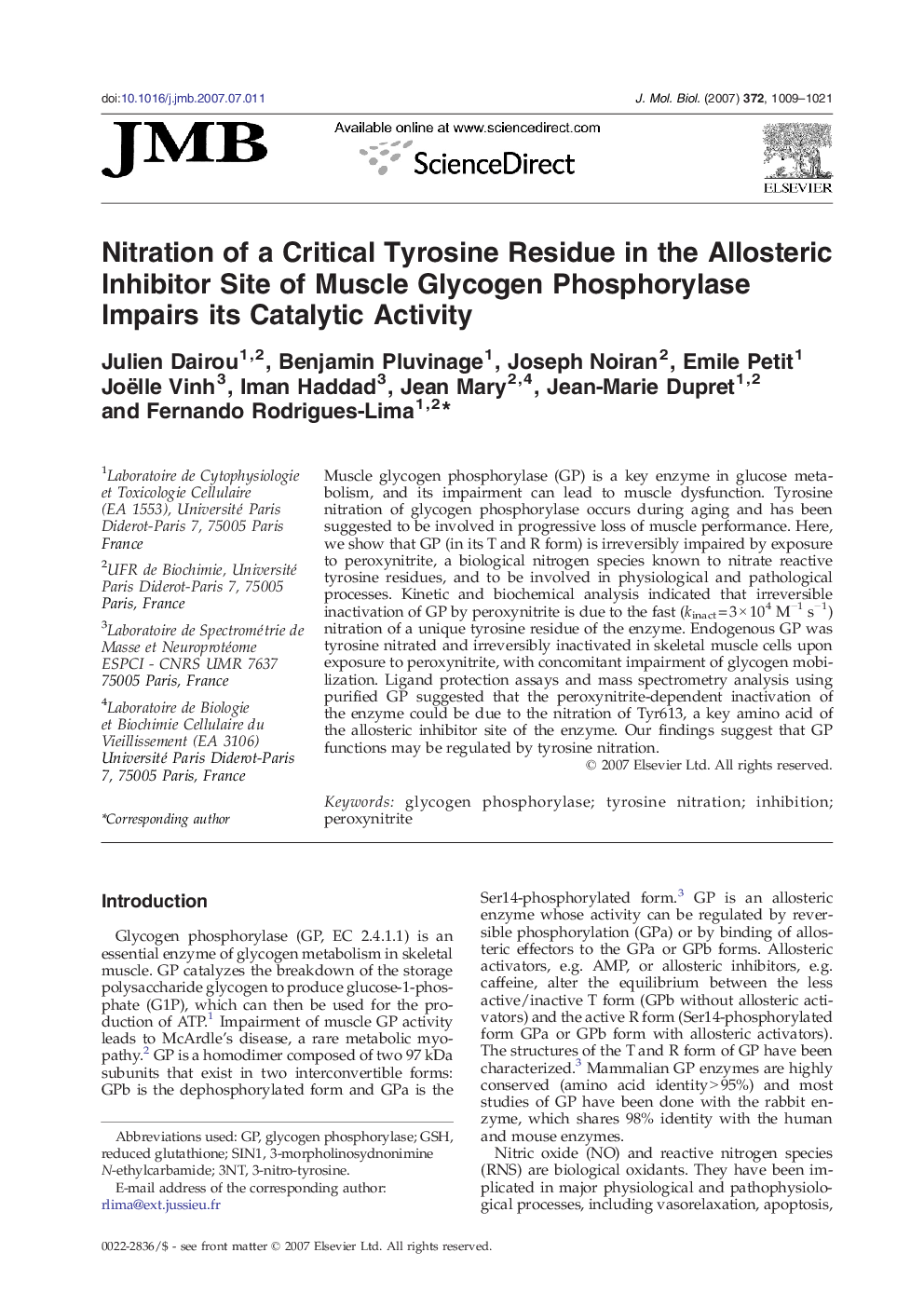| Article ID | Journal | Published Year | Pages | File Type |
|---|---|---|---|---|
| 2187979 | Journal of Molecular Biology | 2007 | 13 Pages |
Muscle glycogen phosphorylase (GP) is a key enzyme in glucose metabolism, and its impairment can lead to muscle dysfunction. Tyrosine nitration of glycogen phosphorylase occurs during aging and has been suggested to be involved in progressive loss of muscle performance. Here, we show that GP (in its T and R form) is irreversibly impaired by exposure to peroxynitrite, a biological nitrogen species known to nitrate reactive tyrosine residues, and to be involved in physiological and pathological processes. Kinetic and biochemical analysis indicated that irreversible inactivation of GP by peroxynitrite is due to the fast (kinact = 3 × 104 M−1 s−1) nitration of a unique tyrosine residue of the enzyme. Endogenous GP was tyrosine nitrated and irreversibly inactivated in skeletal muscle cells upon exposure to peroxynitrite, with concomitant impairment of glycogen mobilization. Ligand protection assays and mass spectrometry analysis using purified GP suggested that the peroxynitrite-dependent inactivation of the enzyme could be due to the nitration of Tyr613, a key amino acid of the allosteric inhibitor site of the enzyme. Our findings suggest that GP functions may be regulated by tyrosine nitration.
